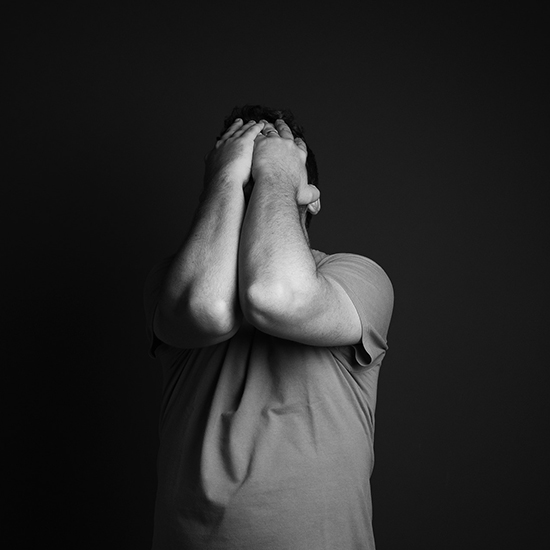 Everybody has experienced nervousness, worry, fear, anxiety and all those unpleasant feelings. It’s a natural part of human exists. In the trucking industry, these are common emotions that occur in your everyday life – especially with the added concern of COVID-19. You work in a fast-paced, stressful job with deadlines to meet, possibly dealing with difficult people, and have to think about the safety of yourself and others.
Everybody has experienced nervousness, worry, fear, anxiety and all those unpleasant feelings. It’s a natural part of human exists. In the trucking industry, these are common emotions that occur in your everyday life – especially with the added concern of COVID-19. You work in a fast-paced, stressful job with deadlines to meet, possibly dealing with difficult people, and have to think about the safety of yourself and others.
Most people can work through those feelings, cope, and continue with their day; the incident soon forgotten and out of mind. However, someone with an anxiety disorder will have a much harder time coping with these unpleasant feelings and situations.
What is an Anxiety Disorder?
Taken from the Mayo Clinic, “people with anxiety disorders frequently have intense, excessive and persistent worry and fear about everyday situations. Often, anxiety disorders involve repeated episodes of sudden feelings of intense anxiety and fear or terror that reach a peak within minutes (panic attacks)”.
With anxiety disorders, feelings of anxiety and panic can interfere with your life (i.e. unable to sleep, avoiding situations and tasks), are difficult to control, out of proportion to the actual danger, and can last a long time.
Symptoms
- Feeling nervous, restless or tense
- Having a sense of impending danger, panic or doom
- Having an increased heart rate
- Breathing rapidly (hyperventilation)
- Sweating
- Trembling
- Feeling weak or tired
- Trouble concentrating or thinking about anything other than the present worry
- Having trouble sleeping
- Experiencing gastrointestinal (GI) problems
- Having difficulty controlling worry
- Having the urge to avoid things that trigger anxiety
There are several types of anxiety disorders, such as generalized anxiety disorder, panic disorder, social anxiety disorder, agoraphobia, just to name a few. Many complications can arise with any anxiety disorders besides the feeling of worry, panic, and fear.
- Depression (which often occurs with an anxiety disorder) or other mental health disorders
- Substance misuse
- Trouble sleeping (insomnia)
- Digestive or bowel problems
- Headaches and chronic pain
- Social isolation
- Problems functioning at school or work
- Poor quality of life
- Suicide
It’s not all Doom and Gloom
The hardest part is admitting that you may have an anxiety disorder. But it’s something that no one should have to go through alone, nor will it get any better if you don’t seek help. Making an appointment (in-person, virtual, or over the phone) with your doctor or a mental health provider to discuss your concerns, diagnose you, and make a plan, makes it one step closer to learning how to manage these feelings.
When to see your Doctor
- You feel like you’re worrying too much, and it’s interfering with your work, relationships or other parts of your life
- Your fear, worry or anxiety is upsetting to you and difficult to control
- You feel depressed, have trouble with alcohol or drug use, or have other mental health concerns along with anxiety
- You think your anxiety could be linked to a physical health problem
- You have suicidal thoughts or behaviours — if this is the case, seek emergency treatment immediately
One thing to keep in mind is that these feelings may not go away entirely. Even after you seek help and make a treatment plan. However, you can learn techniques, tools, and other ways to manage, control, and understand these feelings. The end goal is finding what helps you, what makes battling these feelings easier, and what gives you a better, happier, and healthier lifestyle.
Resources and Information
If you are in an emergency, call 911.
Manitoba Suicide Prevention & Support Line (24/7) – Toll Free: 1-877-435-7170
The Manitoba Suicide Prevention and Support Line is a toll-free, confidential 24-hour crisis line run by trained crisis counsellors from Klinic Community Health.
ADAM’S Telephone Support Line – 204-925-0040
ADAM’S Telephone Support Line is where you can talk to a caring person with experience and knowledge about anxiety and evidence-based suggestions about how to cope.
ADAM (Anxiety Disorders Association of Manitoba)
ADAM has been providing services to Manitobans with anxiety disorders and their families for more than thirty years. Their programs are evidence-based, supported by research and mental health professionals, and delivered by people with personal lived experiences with anxiety.
Find the contact closest to you on their website.
Klinic Crisis Line (24/7) – 204-786-8686. Toll Free: 1-888-322-3019
The Klinic Crisis Program operates a variety of crisis phone lines and online support services, providing free and confidential counselling, support and referrals for people who are suicidal, in crisis or struggling to cope.
Klinic Community Health – 204-784-4090
Klinic Community Health provides a full range of health-related services, from medical care to counselling and education. Driven by their vision of creating healthy and engaged communities, they promote health and quality of life for people of every age, background, ethnicity, gender identity, and socio-economic circumstance. It is located in Winnipeg, Manitoba, Canada, and is a member of the Manitoba Association of Community Health and Canadian Association of Community Health Centres.
Mobile Crisis Services – 204- 482-5376. Toll Free: 1 (877) 499-8770
Mobile Crisis Services provides voluntary services available to residents of all ages that reside in the Interlake-Eastern Regional Health Authority area. They are a multidisciplinary team that responds to individuals that are experiencing mental health or psychosocial crisis. They provide phone support and active outreach. Mobile Crisis Services can provide mental health assessments, crisis intervention, linkage to resources and short-term follow-up.
24 Hour Crisis Line – 204-482-5419. Toll Free: 1 (866) 427-8628
The 24 Hour Crisis Line provides telephone support for individuals in the Interlake-Eastern Regional Health Authority who are experiencing mental health or psychosocial crisis. It also provides information and helpful resources to individuals looking for themselves or someone else.





